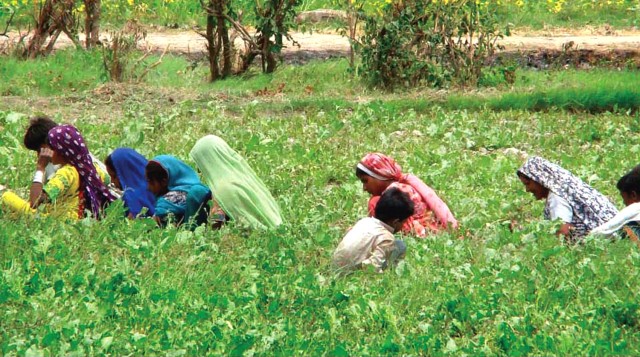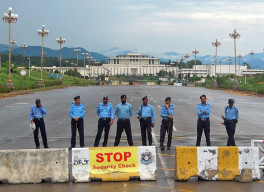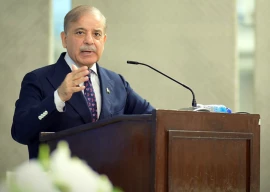
The Chashma-Jhelum Link Canal was only meant to be opened so that floodwater from the river be diverted.
After Aman Gul Khattak resigned from the position of Irsa chairman on June 29, Shafqat Masood, who is also a Punjab member of Irsa, was appointed the acting chairman. On Tuesday, he announced that the link canal, closed since February 10, was being reopened. Sindh’s chief minister angrily wrote the federal government, saying that Masood must be immediately removed from the post.
Irsa has a total of five members: one from each of the four provinces and one federal government member. To make any decision, a majority of opinion - three votes out of five - is needed.
According to officials, Shafqat Masood called for the link canal to be opened at a time when Sindh’s Irsa representative was absent.
“This is a clear violation of the Irsa Act,” claimed Bashir Ahmed Dahar, who is an Irsa federal government member. “On Tuesday, we were only three people present. Even though I opposed the opening of the canal and the Sindh member opposed it on the phone, the acting chairman instructed Wapda to open the canal,” Dahar said.
Sindh member Muhammad Khan Memon and Dahar submitted their resignations to the prime minister on Wednesday.
They cited differences with Irsa acting chairman Shafqat Masood who went ahead with his decision even though they opposed it and the Khyber-Pakhtunkhwa and Balochistan members were not present.
“The resignations are conditional. If Masood is removed from the post and if the decision is taken back, we will withdraw them,” Memon told The Express Tribune.
According to international law, lower riparian states or those that border the bank of the Indus river here, have more rights to the water. But in this case, Sindh and Balochistan were not consulted at all.
CM Qaim Ali Shah told the federal government that Masood’s decision was “personal and one-sided”, officials revealed on Wednesday.
At a meeting at CM House, Shah said that the water lost to the link canal would cause huge losses to Sindh’s agricultural economy.
Talking to journalists, Sindh irrigation minister Syed Murad Ali Shah said that the acting chairman had no powers or the right to take such important decisions. “He overstepped his authority. We have recorded our protest and we will take a stand unanimously,” he said.
This decision has been met with considerable dismay. Sindh Abadgar Board, Ghotki, general secretary, Ghulam Hassan Chachar, told The Express Tribune that the decision was “unlawful” as it was one man’s decision. “Irsa claims there is enough water for every province. If there is, then why are people staging sit-ins for water and why are harvests being delayed?” he asked. To give an idea about the magnitude of the decision, he said that as a grower he was not prepared to part with 20 cusecs of water for a sugar mill, but Irsa had without asking anyone, opened an entire link canal.
The decision was opposed on technical grounds and the opposition has no political background, Dahar explained, adding that the flow position of the River Indus does not allow the opening of the canal. “On June 29, another meeting was held to discuss the opening of the canal and it was opposed by three members. So why was another Irsa meeting called after six days?”
The timing is also bad, Dahar said, as farmers from Balochistan staged a sit-in at the Sukkur Barrage on Tuesday because they have no water. “Why would they announce the opening of the link canal now when there is an obvious water shortage?”
Meanwhile, Irsa, in a clarification, said that none of the stakeholders had been subjected to any shortage due to the opening of the CJ link canal.
Irsa spokesman Idrees Khalid Rana clarified that judicious actions need to be taken to regulate the available supplies vis-a-vis provincial demands. The availability of water at Trimmu on the river Chenab, which feeds the South Punjab Canal, was showing a declining trend and so the canal needed to be opened, he explained.
The link canals are operated as part of the Indus Water Treaty 1960 to manage the Indus Basin as an integrated entity. Also clause 14 d of the accord provides provinces the freedom as well as period-wise use within their allocations, Rana said. “Presently, all the stakeholders are getting supplies which are even more than the defined provincial shares.”
Published in The Express Tribune, July 8th, 2010.










1731929357-0/Express-Tribune-(6)1731929357-0-270x192.webp)






COMMENTS (1)
Comments are moderated and generally will be posted if they are on-topic and not abusive.
For more information, please see our Comments FAQ